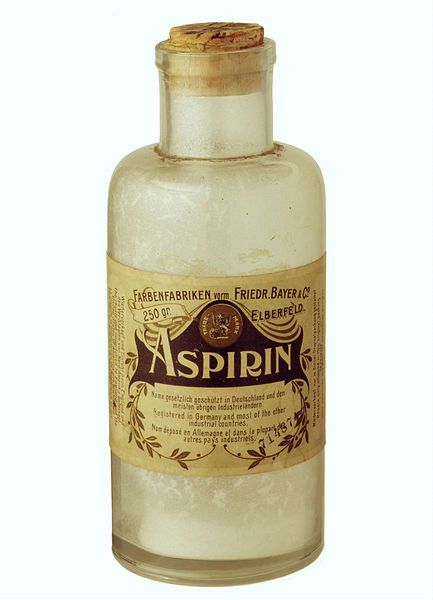The pharmaceutical company, Bayer, first registers “Aspirin” as a trademark.
Bayer AG was founded in Germany by Friederich Bayer in 1863. The pharmaceuticals company’s first major product was acetylsalicylic acid, which is derived from a remedy found in willow plant bark. It was discovered that acetylsalicylic acid could be used as an anti-inflammatory medication, as well as for minor pain/ache relief and fever reduction. Today acetylsalicylic acid is known as aspirin.
On this day, March 6th, in 1899, Bayer registers aspirin as a trademark. Bayer’s trademark was registered worldwide, but the company’s U.S. assets and trademarks were confiscated by the the United States during World War I. As a result, aspirin became the generic term to describe the drug for all brands in the U.S., France and the United Kingdom. Aspirin remains a trademark for Bayer in over seventy other countries.
Aspirin is currently one of the most used over-the-counter drugs in the world. Several other benefits of aspirin have been discovered, such as its effective treatment of headaches and its long term benefits of heart attack and stroke prevention. Although Bayer may have lost its trademark of the Aspirin name, the company’s contribution to the pharmaceutical industry is not tarnished.

